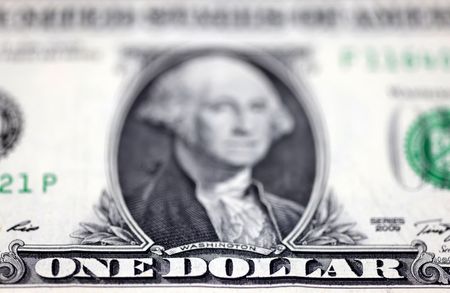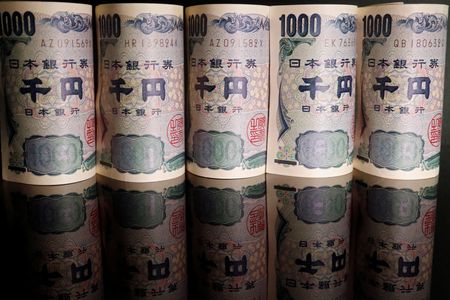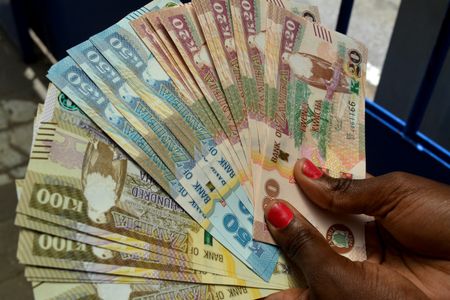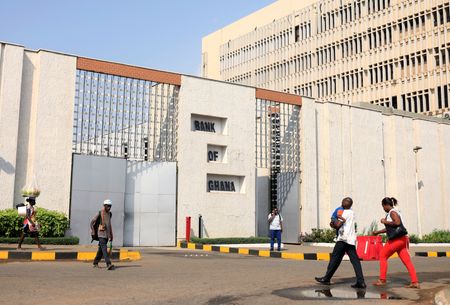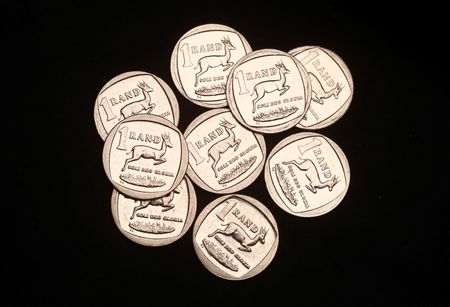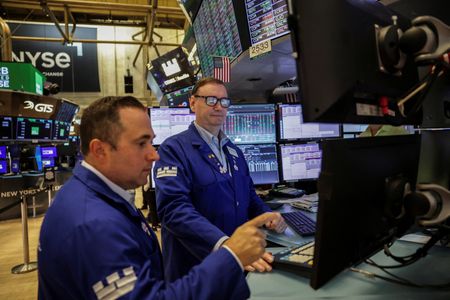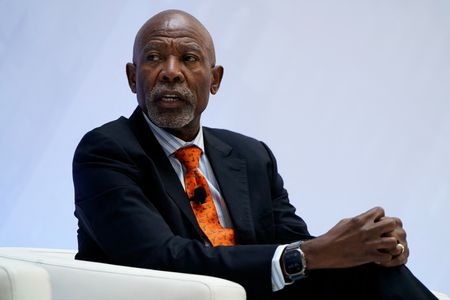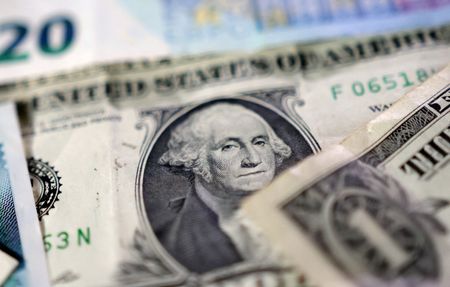By Rocky Swift and Lucy Raitano
TOKYO/LONDON (Reuters) -The dollar was broadly stronger against major peers on Thursday as investors assessed U.S. President Donald Trump’s latest comments on Fed Chair Jerome Powell’s future, while concerns over a pivotal election in Japan weighed on the yen.
The dollar firmed 0.55% against the euro, bringing the currency pair largely back to where it had been before a drop in the dollar late on Wednesday due to concerns that removing the Fed chief before his term ends in May 2026 would undermine faith in the U.S. financial system.
Trump said Wednesday he was not planning to fire Powell, but he kept the door open to the possibility and renewed his criticism of the central bank chief for not lowering interest rates.
In other currencies, sterling edged 0.2% lower to $1.3395, after data showed British pay growth slowing in May and employee numbers dropping further last month, though job losses were less alarming than some experts had feared.
“… the labour market is still not in a good position, even with these revisions, in combination with what we saw yesterday with inflation it is not a good situation with the pound,” said Michael Pfister, FX analyst at Commerzbank.
UK inflation data on Wednesday showed prices rising to their highest since January 2024, renewing the focus on Bank of England rate cuts.
Meanwhile, concerns mounted over a pivotal election in Japan and a still elusive trade deal with the U.S. to avoid a punishing rise in tariffs.
Japan’s currency was just off a one-year low against the euro touched on Wednesday, as polls showed Prime Minister Shigeru Ishiba’s coalition was in danger of losing its majority in the upper house.
The yen was down 0.6% to 148.73 to the dollar after touching its weakest level since April 3 in the previous session <JPY=EBS. The Japanese currency was unchanged at 172.225 per euro, after touching 173.24 on Wednesday, the weakest since July 12, 2024.
Japan’s top trade negotiator held a phone call with U.S. Commerce Secretary Howard Lutnick on tariffs, as data showed the Asian nation’s exports were starting to feel the impact of tariffs with shipments down for a second straight month.
“With the elections, the tariffs, the overall relationship between Japan and the U.S., I do think there is some reason to sell the yen,” said Bart Wakabayashi, Tokyo branch manager at State Street. “The election seems to be a key point in the foreign view of the currency at the moment.”
Investors remain focused on tariffs ahead of an August 1 deadline, when many trading partners face higher trade levies. Japan failed to clinch a deal with the U.S. before the July 9 expiration of the temporary pause on the country-specific tariffs.
AUSTRALIA JOBS DATA
Meanwhile the Australian dollar slid after jobs data badly missed forecasts and unemployment hit highs not seen since late 2021.
The Aussie dollar fell 1.1% to a more than three-week low of $0.6456 while New Zealand’s kiwi dollar lost 0.57% to $0.5912.
A more dovish Fed could lead to a return of inflation and negative real yields on Treasuries, said Mahjabeen Zaman, head of foreign exchange research at ANZ.
“If that comes to fruition, you’re going to see a much weaker dollar than we’re already expecting,” Zaman said in an ANZ podcast. “Such an event, if that even does happen, it will raise questions for Fed independence and credibility, so I think it’s only going to be an increase in volatility.”
Trump has railed against Powell for months for not easing rates, which he says should be at 1% or lower. Bloomberg reported that the president is likely to fire Powell soon, and a source told Reuters that Trump polled some Republican lawmakers on firing Powell and received a positive response. Trump said that the reports were not true.
Markets are awaiting U.S. retail sales data for June as well as TICs data for May due later.
“We will see the extent to which tariffs and U.S. policies caused foreign investors to rotate away from U.S. Treasuries,” Francesco Pesole, FX strategist at ING, said.
(Reporting by Rocky SwiftEditing by Shri Navaratnam, Joe Bavier and Alison Williams)

